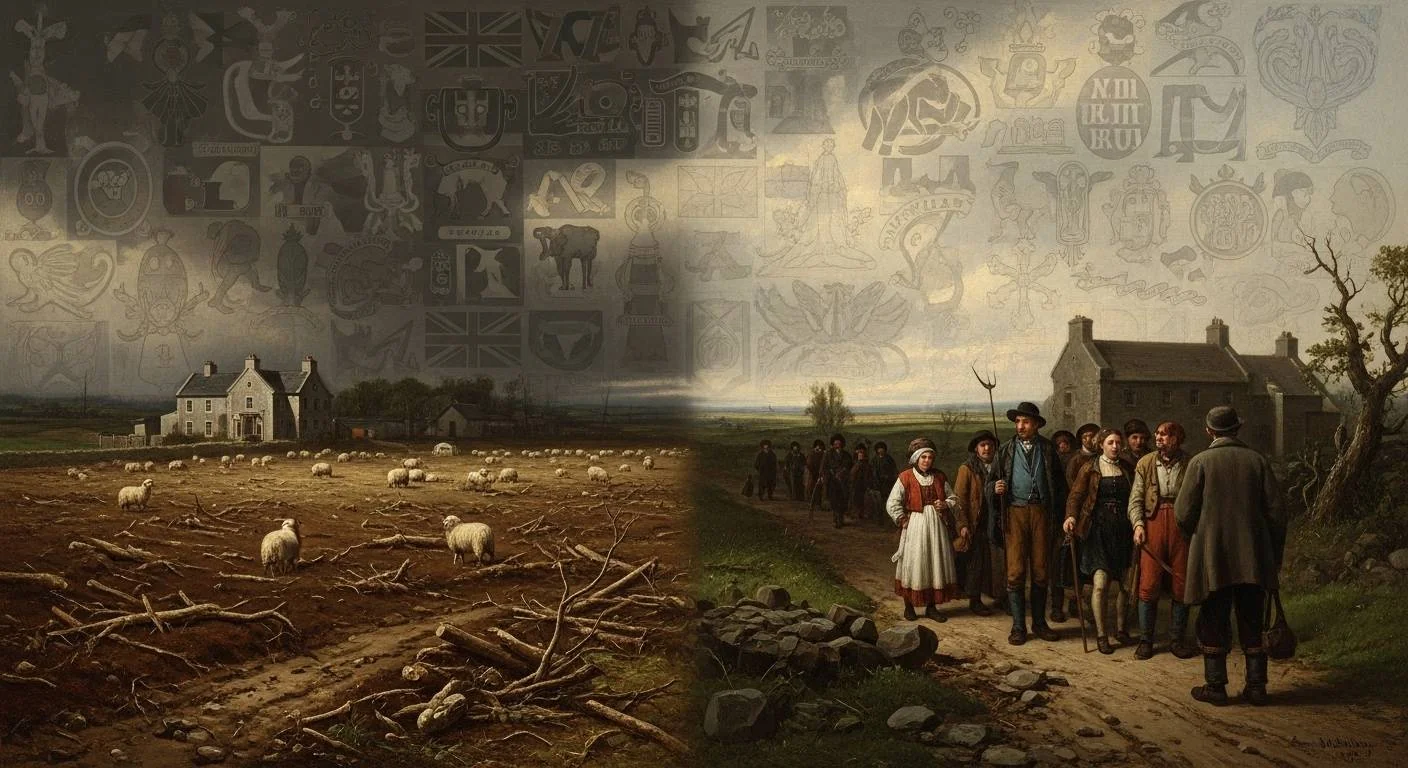
Marx on Nineteenth Century Colonial Ireland: A Blog Summary
Understanding Ireland’s colonial past is crucial for grasping the roots of its modern society, economy, and even its environment. The paper “Marx on Nineteenth Century Colonial Ireland: Analyzing Colonialism as a Social Process” by Eamonn Slater and Terrence McDonough offers a deep dive into how Karl Marx interpreted the British colonization of Ireland—not just as a political or economic event, but as a complex, evolving social process. This blog post summarizes the main arguments and insights from the paper, helping you decide if you want to read the full article (link at the end).
Why Marx on Ireland?
Most discussions about colonialism in Ireland focus on economic exploitation or political domination. Marx’s writings, especially his 1867 report on Ireland, are often cited to support these perspectives. However, Slater and McDonough argue that Marx’s analysis was far more nuanced and multidimensional than what traditional “dependency theory” suggests.
Colonialism as a Social Process
Key Insight:
Marx saw colonialism not as a static or one-dimensional event but as a regime that changes over time and penetrates every level of society.
- Political Regime: Colonialism begins at the political level, with institutions and laws imposed by the colonizer.
- Legal and Economic Penetration: Over time, these political changes reshape legal codes, economic relationships, and social structures.
- Ecological Impact: Marx even recognized an ecological dimension, noting how colonial agricultural practices led to the depletion of Irish soil.
The Evolution of Colonial Regimes
Marx identified several distinct “phases” in the colonial relationship between Britain and Ireland:
- Early Colonization (Elizabethan and Cromwellian eras): Violent attempts to replace the Irish population with English settlers.
- Rack-Renting and Middlemen (1801–1846): Landlords, often absentee and English, imposed crippling rents on Irish tenants. The legal system favored landlords, creating a feudal structure even as feudalism faded in England.
- Clearing the Estate (Post-1846): After the Famine, the focus shifted to consolidating farms, evicting smallholders, and turning arable land into pasture for livestock, which benefited English markets.
Beyond Dependency Theory
Dependency theory argues that colonialism underdevelops the colonized by integrating them into the capitalist world system. Marx’s analysis, as interpreted by Slater and McDonough, goes further:
- No Single “Prime Mover”: Colonialism’s impact cannot be reduced to just capitalism or political domination. It’s a dynamic process involving multiple, sometimes conflicting, institutions and strategies.
- Feudalism, Not Capitalism: In Ireland, colonialism entrenched a feudal landlord class, stalling capitalist development and keeping the majority of the population in poverty.
Deindustrialization and Landlordism
- Destruction of Industry: British policies deliberately suppressed Irish manufacturing, forcing the population back onto the land.
- Landlord Power: The real “success” of English colonialism was the creation of a powerful, largely autonomous landlord class. These landlords controlled not just the land but also the legal and political institutions of Ireland.
- Rack-Renting: Tenants had little security and paid excessive rents, often through a chain of middlemen, which further impoverished them.
The Ecological Dimension
Marx was ahead of his time in recognizing that colonialism could have environmental consequences:
- Soil Depletion: The export-oriented agricultural system drained nutrients from Irish soil, leading to long-term ecological decline.
- Metabolic Rift: Marx’s concept of a “metabolic rift” described how colonial trade patterns disrupted the natural cycle of nutrients, harming both land and people.
Health and Society
The paper highlights Marx’s observation that the physical and mental health of the Irish population deteriorated alongside the land. Emigration, starvation, and disease followed in the wake of these social and ecological disruptions.
Resistance and the Fenian Movement
Marx concluded that the Irish struggle was about more than national identity—it was a fight for land and survival. The Fenian movement and other forms of resistance targeted not just British rule, but the entire colonial regime embedded in Ireland’s political, legal, economic, and social systems.
Conclusion: Colonialism as Complexity
Slater and McDonough’s reading of Marx challenges simplified theories of colonialism. Instead, they propose that:
- Colonialism is a complex process operating at multiple levels.
- It cannot be understood by focusing solely on economics or politics.
- Each colonial situation must be analyzed in its unique historical and social context.
If you’re interested in a deeper exploration of these themes, including detailed historical analysis and references to Marx’s original writings, you can read the full paper online or download it as a PDF.
This summary captures the main arguments and insights, but the original paper offers much more for those who want to understand the full complexity of Marx’s analysis of colonial Ireland.

